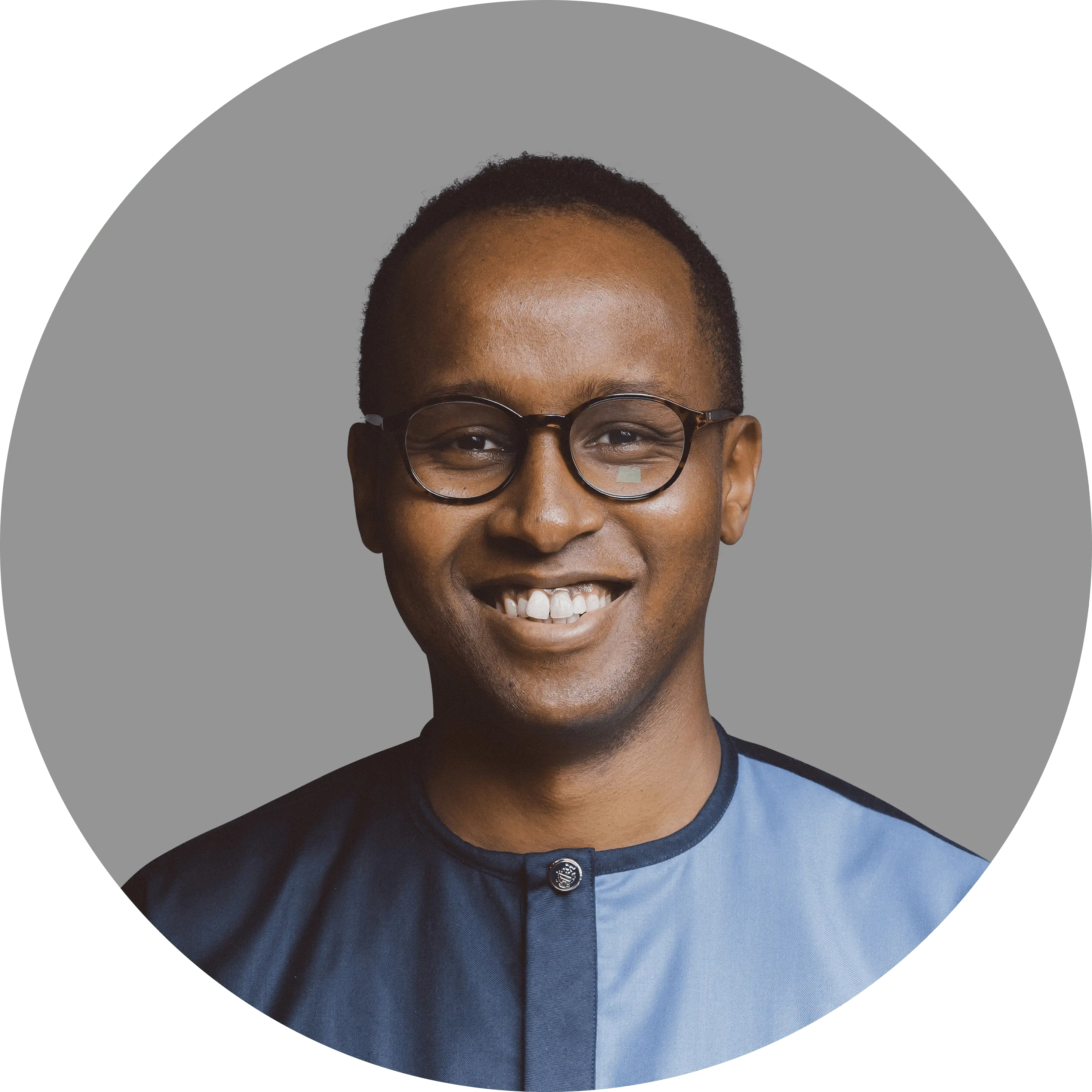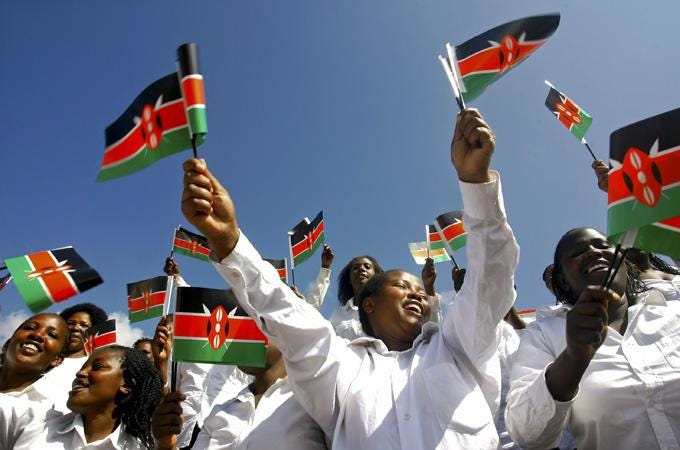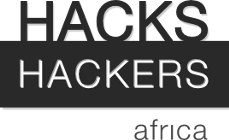Building an Elections Toolkit
Getting Citizens to the Polling Booth Informed and Ready
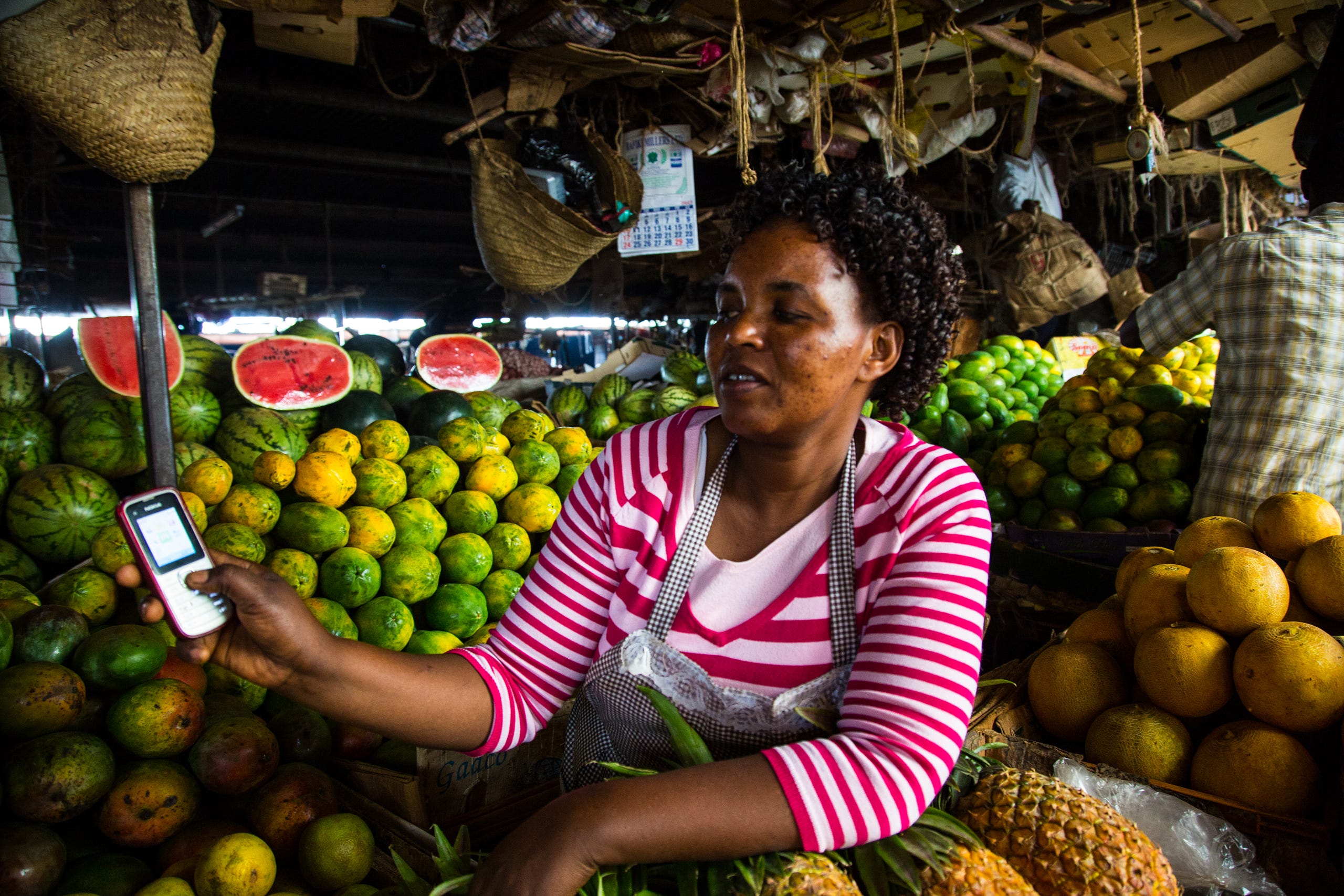
This is summary of a lightning talk I gave at Media Party Africa. Check out the #MediaPartyAfrica tweets here. And awesome recap by Kainaz Amaria here.
The 2007-2008 Kenyan crisis was a political, economic, and humanitarian crisis that erupted after incumbent President Mwai Kibaki was declared the winner of the presidential election held on December 27, 2007.
Supporters of Kibaki’s opponent, Raila Odinga of the Orange Democratic Movement, alleged electoral manipulation.
This was widely confirmed by international observers, perpetrated by both parties in the election.
It was clear that Kenya was ready for reforms. And it did just that.
2013 Kenyan Elections
Fast forward to 2013: Kenya has a historic election. There is a new constitution, new boundaries, and new electoral positions. There is excitement in the air — a feverish zeal to the newness of it all. If I could take you back, the hair on your arms and the back of your neck would stand on end.
But as part of this newness, for citizens to take part, and exercise their democratic right to vote, they had to register anew. The Kenyan Independent Elections and Boundaries Commission, IEBC, brought in biometric voter registration equipment, created massive roll out plans, and was set to get 16 million people into their database; one of the key steps to reduce chances of electoral manipulation witnessed in previous elections.
Access to Information Gap
Kenyans then finally received what they had been waiting for; information on where they could register to vote.
But it was a PDF. A two hundred and forty eight page PDF that took an hour to download. Off a website that was mostly unavailable because of so many people trying to access it at the same time.
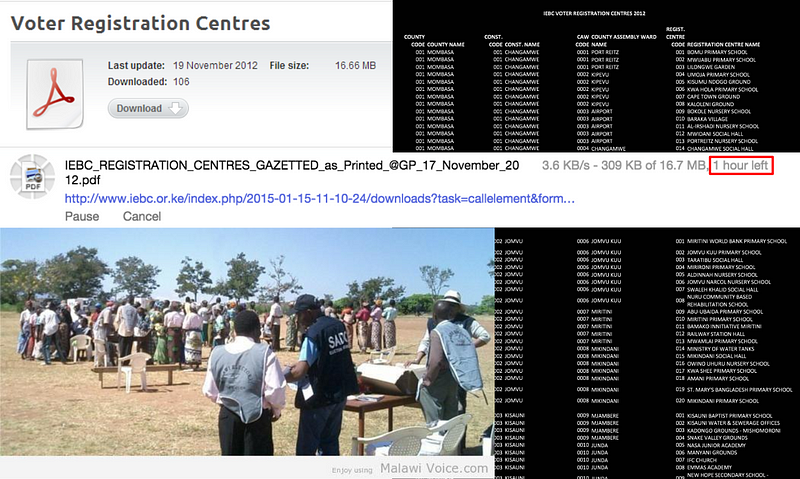
Later we found out that this was no different in many countries across Africa. Elections commissions produced PDFs and hoped that you would be able to scroll through all the pages to find the one closest to you.
There was a gap. A gap for citizens to access the information they needed to get to the polling booth informed and ready.
Strategy
Our strategy was simple; accessing elections information had to be fast, mobile-ready, & always available.
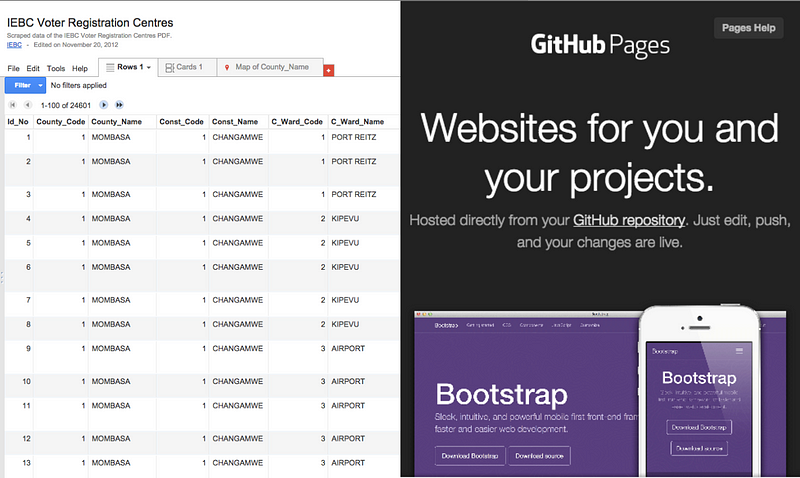
For our first iteration, we leveraged Google’s own infrastructure, Google Fusion Tables, and a free, reliable website hosting feature from Github, currently one of the largest hosts of open source software.
Mechanics
The result was a mobile friendly website with easy to use drop downs and no PDFs, nor maps as Greg Kempe will tell you;
Using a map to visualise data is (almost) always a bad idea. — Greg Kempe, Code4SA
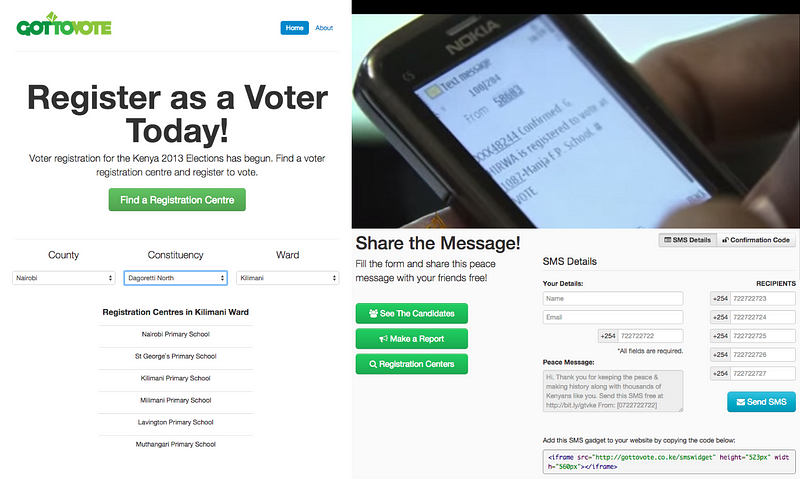
GotToVote since evolved to include SMS services for voter verification and sharing of free peace messages. The toolkit also expanded to provide real-time elections results visualised and able to be drilled down.
Impact
- We improved government service delivery: Adoption of our toolkit by the Malawi government improved service they provide to citizens. Ghana has a consolidated, re-usable list from this. All while reducing costs. In Kenya, the elections commission has called GotToVote a contribution to the nation — its people and its government.
- We solved a public problem: There were no easy ways for people to get this kind of crucial elections information. In Malawi, four hundred thousand people used GotToVote.
- We empowered citizens: the barriers to get out and vote were reduced, as citizens were more confident of the information they had.
What does this mean for media?
Tools like these can give audiences, citizens, actionable information.
Beyond reading about registration centres being open, media can engage with citizens in new ways. Give audiences tools to get registered to vote, confirmed to vote, and to get their networks to do the same.
Closing the gap of “what this means to me” as a reader, and “what can I do”, results in a more engaged audience.
Partnerships
Partnerships are the saving grace of the broke and ambitious. — Latoya Peterson
Partnerships have been at the corner-stone of everything we’ve been able to achieve and will achieve in the future. These amazing organisations , including governments, have contributed in a large way to making this happen:
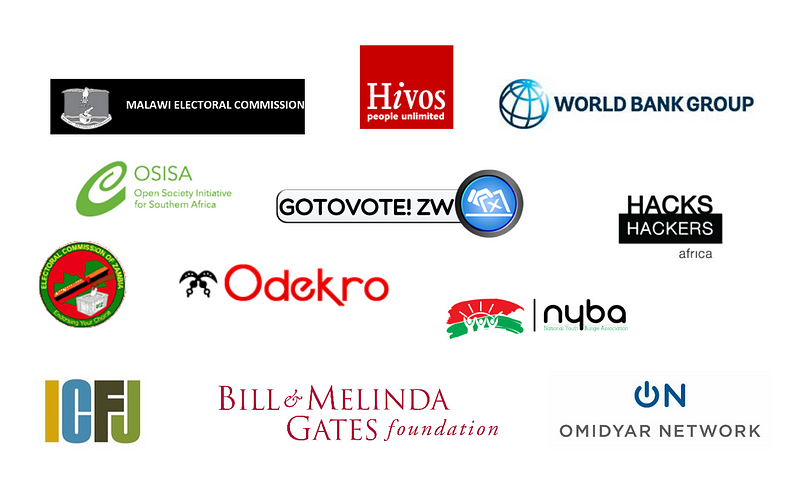
CfAFRICA | Presentation | Building Elections Toolkit (GotToVote)
Building Elections Toolkits GotToVote.cc | Getting Citizens to the Polling Booth Informed and Ready
Home | GotToVote.cc
Enabling citizens to get to the ballot box informed and ready.
Media Party Africa is hosted by the continent’s largest data journalism and civic technology federation, Code for Africa, in partnership with Hacks/Hackers Africa. Together, we’re gathering some of the world’s most exciting civic technologists, digital journalists and other social justice watchdogs from across the world for three days of workshops and talks. Media Party Africa is modelled on the original Media Party, in Buenos Aires, which has been taking place annually for the last five years.
The worlds of hackers and journalists are coming together, as reporting goes digital and Internet companies become media empires.
The worlds of hackers and journalists are coming together, as reporting goes digital and Internet companies become media empires.
Journalists call themselves “hacks,” someone who can churn out words in any situation. Hackers use the digital equivalent of duct tape to whip out code.
Hacker-journalists try and bridge the two worlds. Hacks/Hackers Africa aims to bring all these people together — those who are working to help people make sense of our world. It’s for hackers exploring technologies to filter and visualize information, and for journalists who use technology to find and tell stories. In the age of information overload and collapse of traditional business models for legacy media, their work has become even more crucial.
Code for Africa, the continent’s largest #OpenData and civic technology initiative, recognises this and is spearheading the establishment of a network of HacksHackers chapters across Africa to help bring together pioneers for collaborative projects and new ventures.
Follow Hacks/Hackers Africa on Twitter and Facebook and join the Hacks/Hackers community Nairobi community group today.
Originally published by David Lemayian on Medium.com for HacksHackersAfrica.
